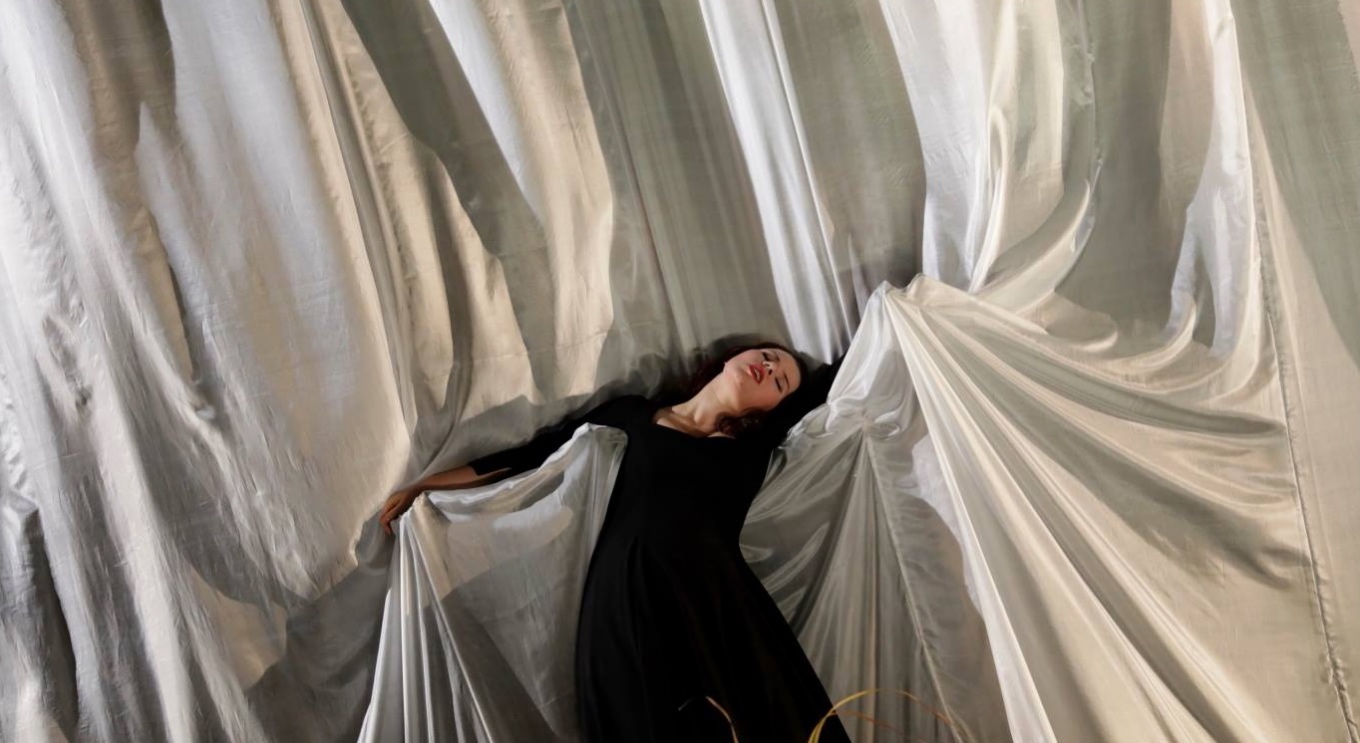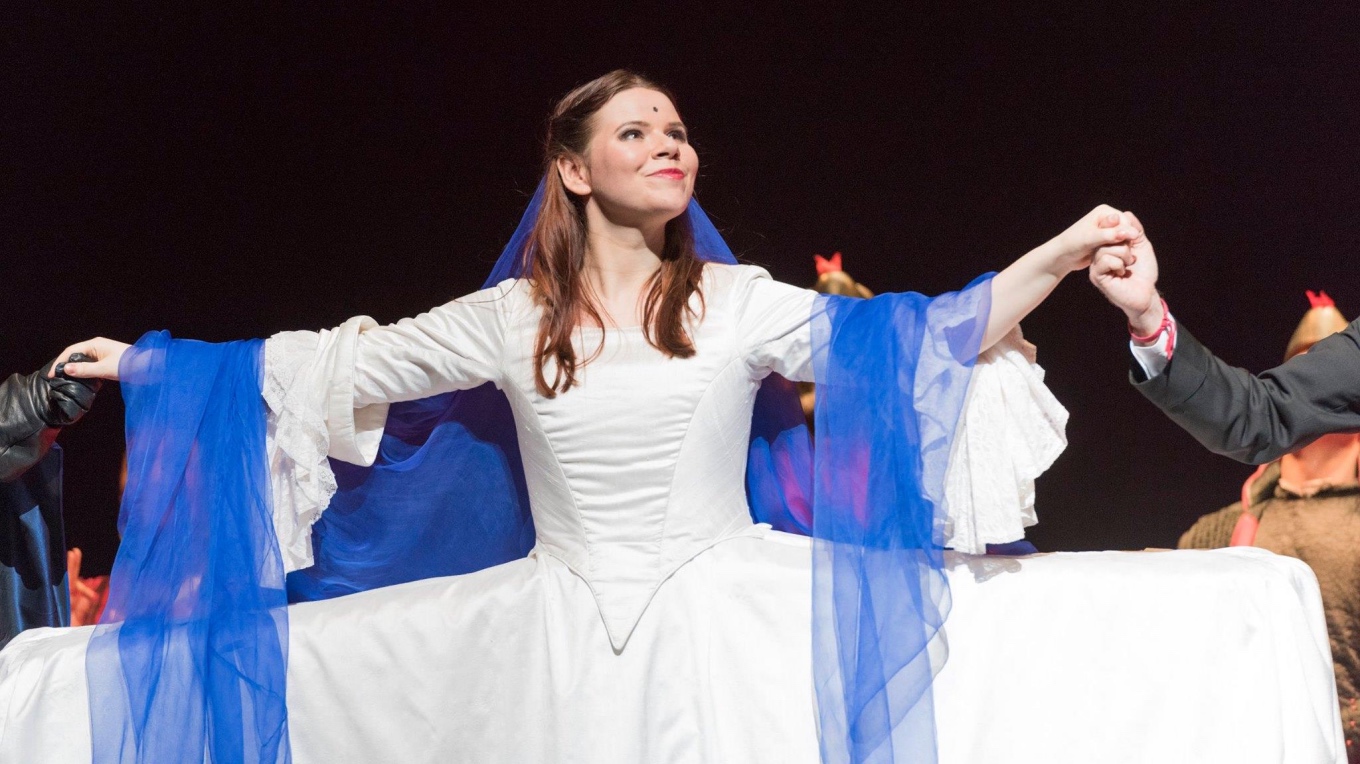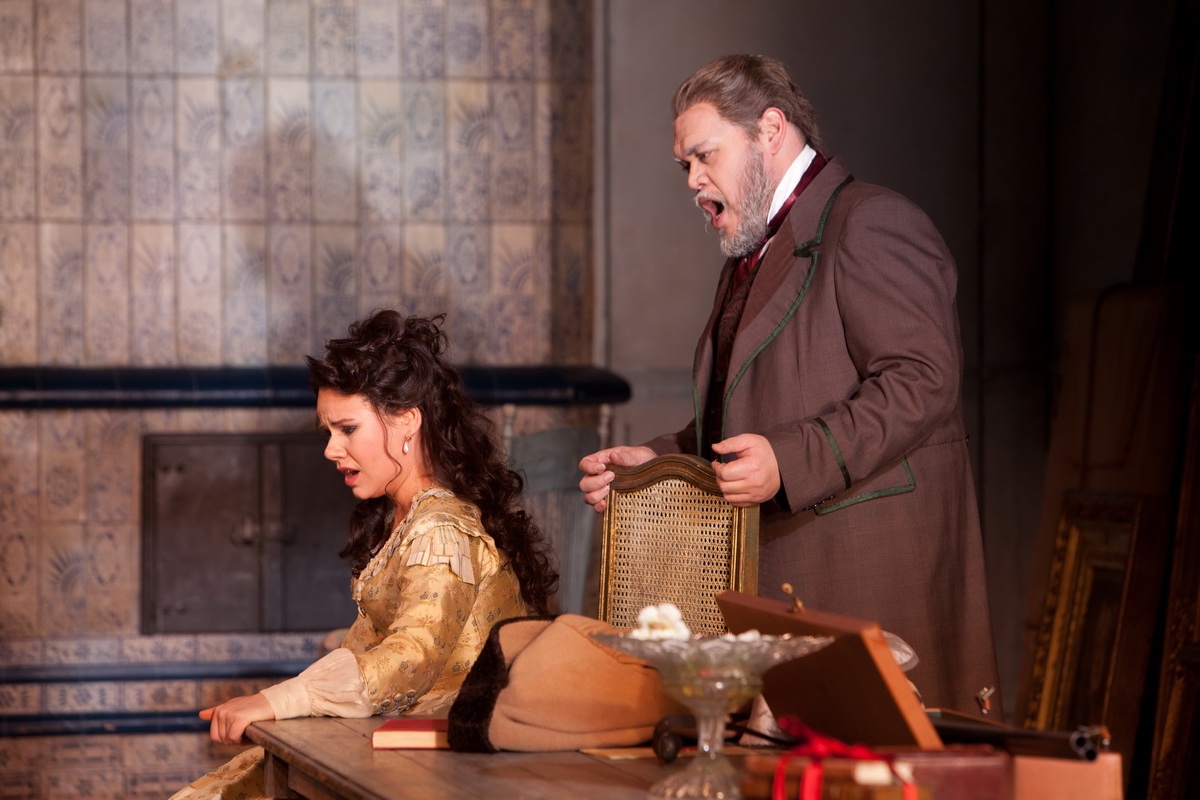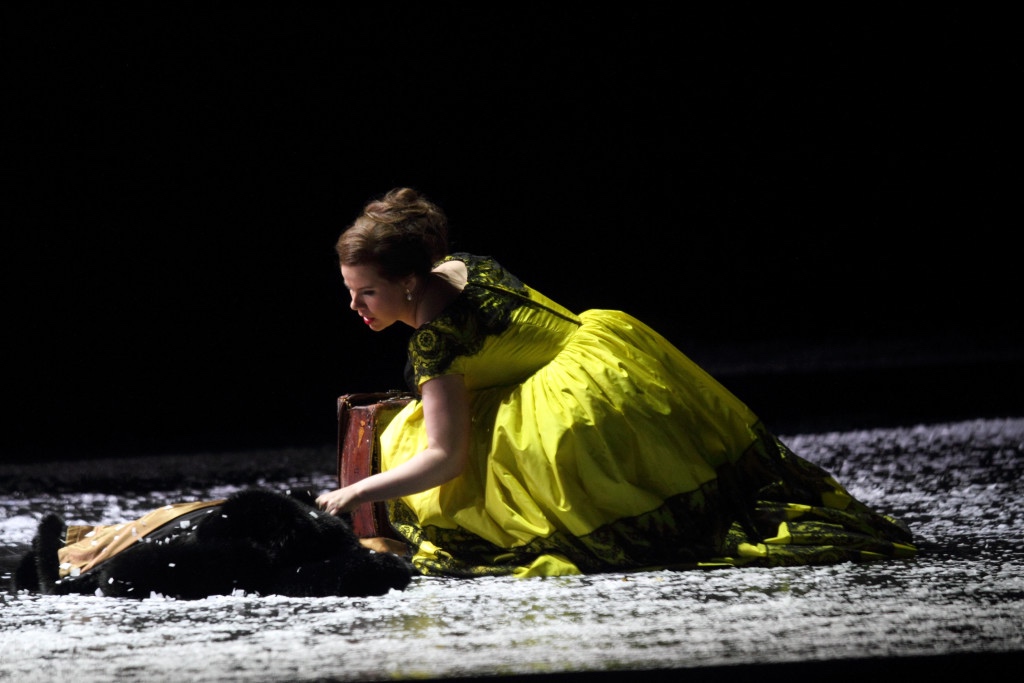
Talking with singers: Vlada Borovko
InterviewRussian soprano Vlada Borovko is currently in Chile, preparing to sing Adalgisa in Francesca Zambello’s production of Norma at Municipal de Santiago. Borovko spent two seasons as a young artist with the Royal Opera House in London from 2015 to 2017, during which she stepped in last-minute for performances of Violetta in La traviata, and Aspasia in Mitridate, re di Ponto; she also made a recent return in the 2017⁄18 season to Covent Garden to sing Musetta in Richard Jones’ production of La bohème.
Borovko chats with us about her role in Norma, her disciplined approach to her health, and the importance of guidance in her professional life.
Why do you sing?
Singing is my passion. When I was born and screamed the first time, the nurse told my mother that I had a very strong voice, and most likely would become a singer. I have loved singing since childhood, but until 19 years old I did not think about the career of an opera singer. I am glad there were people who explained to me that I have an operatic voice and I need to learn how to use it professionally.
I am sure that beautiful singing has a beneficial effect on a person’s inner state. This is one of the main reasons why I enjoy singing for audience. I like to make people happier, and I’m glad when my singing causes a response in their hearts.

What does it feel like to sing, when everything is going well?
When everything goes well and the voice sounds wonderful, I feel inspired and confident. At such moments, you experience joy as an artist and you can add new emotional colors to your character. Often, good stage partners, who energise me with their enthusiasm and charisma, help me to experience the joy of singing during a performance. If we work together as a good team, the audience feels it, and it is easier to sing and the voice sounds freer, brighter.
But it sometimes happens that all is not going according to plan. Maximum preparation always gives results, even when you are unwell or urgently need to replace an ailing colleague. When I had to make role debuts and jump in as Aspasia and Violetta at the Royal Opera House, I was focused on making the show go on and helping my stage partners feel secure whatever the circumstances. The opera world is unpredictable. Sometimes you need to sing without rehearsals in unknown productions, but a belief in yourself and a responsible attitude towards work will help you to enjoy the artistic result.

How do you stay healthy and sane while traveling for work?
I am a vegetarian and lead a healthy lifestyle. I always follow my phoniatrician’s advice and try to sleep well in order to make my voice happy. I like to get professional massage so my body can be relaxed. When the body is strong, it is easier to endure long flights and stress, and adapt to a new climate. I believe it is crucial to have breaks between contracts, so you don’t feel wear out and give yourself mental rest and time to prepare for another project.
What kind of woman is Adalgisa?
Adalgisa is a young, naïve girl who fell in love with the warrior Pollione. She is tormented by the choice between duty and love for a stranger. Having learned the truth about Norma and Pollione’s relationship, she stands on the side of Norma, as she has a noble soul, and she cannot betray her friend. She is strongly attached to Norma, ready for the sake of friendship to sacrifice her own happiness. I admire her altruism and honesty. She is a good person with a kind heart. As a soprano, I am going to emphasize Adalgisa’s qualities, such as tenderness, purity and meekness. This is my first major bel canto part, and I hope that under the guidance of Francesca Zambello, I will be able to play this role well in the Municipal Theatre of Santiago.

Do you have any “bucket list” roles you’d like to sing (realistically or otherwise)?
At this stage of my career, I am very interested in Mozart, especially in ladies like Donna Anna, Elettra, Vitellia, and Junia. I also hope to sing more belcanto roles after Adalgisa. I would like to perform something from Rossini, especially Il viaggio a Reims. I love both the character and dramatic images. I hope that I will sing Violetta in La traviata again; I will add Leonora from Il trovatore to my repertoire soon, as well as some more early operas by Verdi. I am really impressed by French opera characters, such as Valentine in Meyerbeer’s Les Huguenots, Marguerite in Gounod’s Faust, and Thaïs by Massenet. My Russian repertoire favourites include Marfa from The Tsar’s Bride by Rimsky-Korsakov and Tatyana from Tchaikovsky’s Eugene Onegin. Of course, there is much of great music in German, Czech, English, which I would like perform one day too. Fortunately, my instrument allows singing diverse repertoire and I only need to plan wisely as the voice grows.

What have you learned about your career as a singer, solely through professional experience?
I was lucky to start my professional career as a Jette Parker young artist at the Royal Opera House immediately after finishing studies in Kazan.
Of course, school education does not give you large amounts of stage experience, in the same way as is provided by some young artist programs. During two seasons as a young artist in London, I was singing supporting roles on the main stage and making unexpected debuts in the leading roles. Of course, in extreme situations you learn much faster.
On stage, just like in a normal life, you need to be strong in order to survive. I am at the beginning of my professional journey. Still, I reckon the stage is the greatest teacher. Everyone has his own way, but I am convinced that the right way is not the easiest one in art. Practicing in a classroom is very important, but you start to develop as a singer only when you often appear on stage. I discovered that there is no development for an opera singer without self-analysis. Only a strong wish to become a better artist than you are now will lead you to the real success one day.
When you start a professional career, you learn not only performance, but also how to build relationships with colleagues. Through your professional experience you start valuing more the good advice you received at school, and you are constantly looking for people who can help you to learn more. In addition to voice technique and stagecraft, there is a lot to learn after graduation. For example, skills of self-representation on auditions, online promotion, drawing up a career plan, gaining self-confidence and professional social skills, and much more. However, I discovered that the most important for a young singer is to learn how to listen to your inner voice to make the right choice throughout the career.
Norma runs at Municipal de Santiago from November 7-17. For details and ticket information, click here.


Comments